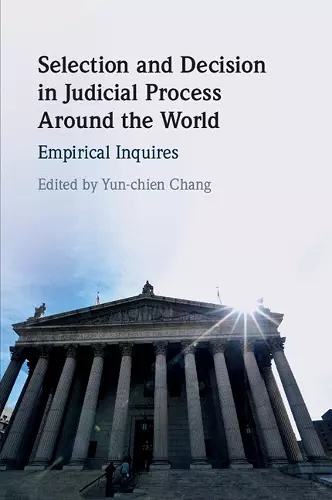Selection and Decision in Judicial Process around the World
Empirical Inquires
Format:Paperback
Publisher:Cambridge University Press
Published:29th Sep '22
Currently unavailable, and unfortunately no date known when it will be back

Leading empirical legal scholars from around the world explore whether and under what conditions the judicial process is efficient.
This book empirically explores whether and under what conditions the judicial process is efficient. Eleven chapters in this book, authored by leading empirical legal scholars in the world, deal with these issues in the US, Canada, Germany, Japan, and Taiwan, as well as the European Court of Human Rights.This book empirically explores whether and under what conditions the judicial process is efficient. Three specific issues are addressed: first, disputants self-select into litigation. Do they tend to bring cases with merit? Second, filed cases differ in their social import. Do courts select more important cases to devote more resource to? Third, courts establish precedents, affect resource allocation in the cases at hand, and influence future behaviours of transacting parties. Do courts, like Judge Posner asserts, tend to make decisions that enhance allocative efficiency and reduce transaction costs? Positive answers to the above questions attest to the efficiency of the judicial process. What drive efficient or inefficient outcomes are the selections and decisions by litigants, litigators, and judges. Their earlier selections and decisions affect later ones. Eleven chapters in this book, authored by leading empirical legal scholars in the world, deal with these issues in the US, Europe, and Asia.
ISBN: 9781009305785
Dimensions: 228mm x 150mm x 18mm
Weight: 460g
312 pages